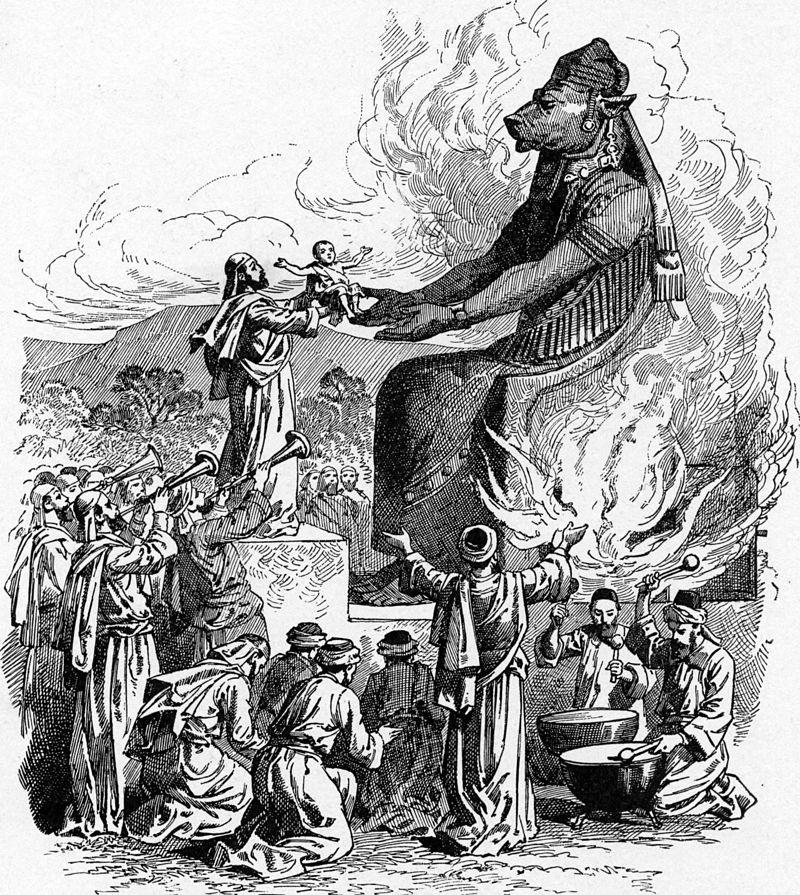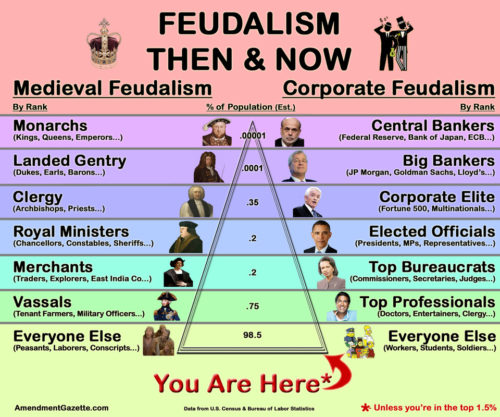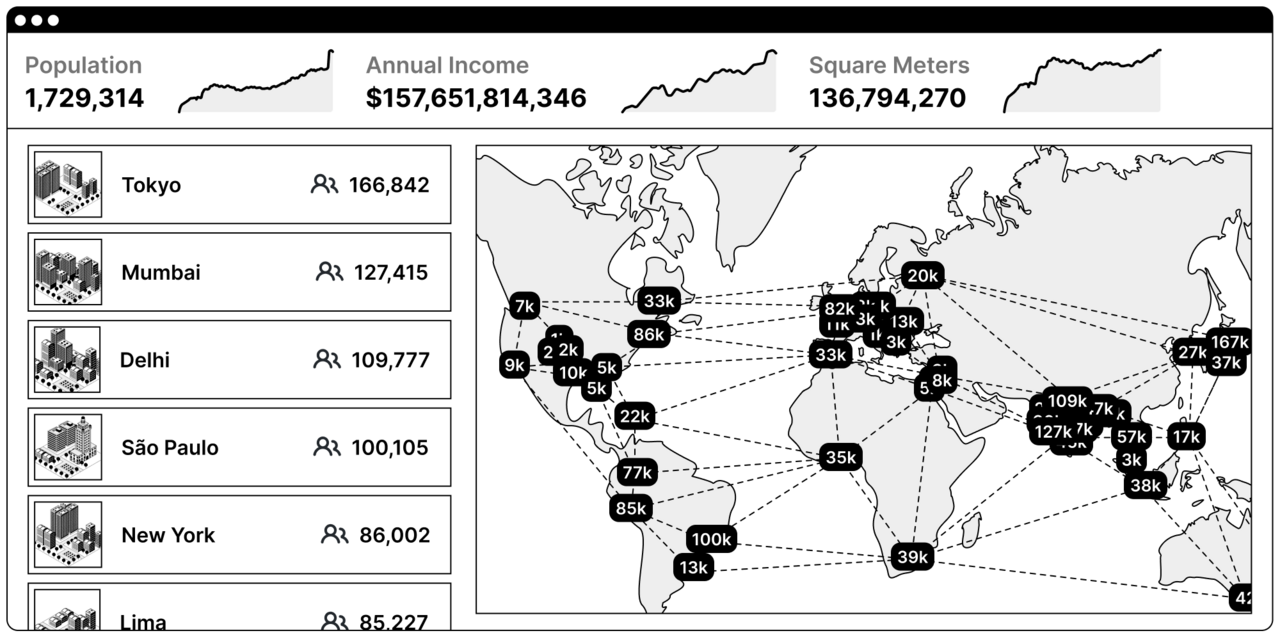Network States. Realigning incentives to dissolve the Moloch.
While my post may seem like a downer, I want to explore a negative topic to ultimately shed light on it. There is hope! The more I learn about Hive's technology, the more fascinated I become. Although many of the concepts may be obvious to Hivers, I feel a strong need to articulate them since they've been bothering me for some time. At times, I feel unnerved when I hear people express a need for what we have here.
Lately, the idea of Moloch has been on my mind. Some may recall Moloch from the old Fallout game or the Bible, but my introduction to the concept within our civilization came from Liz Boeree's interview with Lex Fridman. Boeree dives deep into the idea, and I must admit that it provides a useful framework for diagnosing the current global crisis. So, what is this Moloch thing?

Moloch is God of negative sum games, unhelathy competitive situations. The system of bad incentives that incentivies agents within that system to sacrifies more and more values to win within narrow domain of the game. Sacrificing is an act of externalizing harms to everybody else. The inability for trust and coordination within that system cause race to the bottom. Since no agent within system is willing to make harm, Moloch is an emergent property of the underlying system dynamics resulting directly from the misalignment of incentives and failed coordination.
Here you can find an excelent article on Moloch
Examples of Moloch dynamics in action include the environmental crisis, arms races, fear-mongering in the media, and the quality of elites. Moloch isn't equivalent to elites or any evil group of people seeking to control others, although power dynamics do play a significant role. Most of us play these games to secure our needs and wants, which is normal. However, what happens when the system designed to secure them grows for its own sake? What happens when a self-improving global monster capable of meeting all the material needs of people worldwide gets out of control due to its size and power? At some point it hits a limit.
Yes, there are some people who are profiting more than others from this game. However, putting it into a moral or "should be" framework doesn't seem effective to me. From a panoramic view, humanity is working within an outdated, obsolete coordination system. Since the 1970s, the production capabilities of our global industrial machine have exceeded our collective consumption abilities, and some people refer to this as the age of abundance. Yet, we still live within strictly hierarchical structures of power, with competence in maintaining power being prioritized over any other kind of competence. In the past, this has been a highly effective system for distributing goods limited in nature.
Humans have natural greed, and this is a fact that no diagnosis should focus solely on. No alternative system should fight against it either. However, among the population, there seems to be a bell curve when it comes to greed, with a few very greedy people, most people having an average level of greed, and some who are not greedy at all. However, the system is aligned in such a way that people acting with the biggest greed end up on top and have the ability to shape entire structure. This results in conditions where everybody is incentivized to act with bigger greed than they would naturally do, and the perception of insufficiency is maintained, which only feeds further competitive incentives. Each level of hierarchy feeds to the next level and sucks from the previous one.

The boundlessness of the digital world and approaching zero cost of intelligence are the next massive pushes in transformation. It's surprising to see how some commentators project our current political and economic frameworks into the future despite this massive technological jump that will allow for a significant civilisation and societal leap. This boundlessness enables the growth of new kinds of organic structures built online, outside the reach of legacy government and financial entities.
This is massive. Similar to how the agricultural revolution made food production a tiny sliver of our activity, the data-driven digital revolution will marginalize most of our previous activities. The key is tapping into an unlimited resource base for the economy within sovereign social structures aligned around coordination efforts for the common interest. The keyword here is "common".
Every trace of communality within the system has been devoured by the Moloch. However, as we receive these new shiny things and make "progress", there is always a price. This is the nature of sacrifice. We could argue about pros and cons, but it's not the case. The issue is the unsustainable and deadly nature of such dynamics when extended into the future. This is where the idea of Network State comes in.
We move from the territory of a negative sum game to a positive sum game. Creating a Network State doesn't require taking resources from nation-states. With relatively low energy consumption (compared to gargantuic administrative machines), we can secure our basic rights in a digital realm with virtually no possibility of being attacked. Actually, the entire need for conflict disappears since there is no need for borders.
Even competitive relations can be aligned for a common good within this framework. Networks can customize parameters to create the most sustainable and beneficial conditions for participants. This combined with easy opt-in and opt-out for everybody secures the interests of users even more.
Does hierarchy disappear entirely? Not entirely, and the nature of the new hierarchy is entirely different. First of all, thanks to the stake mechanism, people in positions of power are actually accountable to the community since their incentives are aligned with the community's, and at the stake is also their reputation within the system. And since participants are involved voluntarily, their care for the shape of the network is increased.
Secondly, in my opinion, the biggest misappropriation is disabled almost entirely. Since people in charge of code are chosen (not elected) democratically, there are no fixed terms and super majority needs to agree on changes, any malicious or exploiting change becomes extremely hard to implement. Additionally, thanks to incentivization with reward for block producing, cooperation becomes extremely more profitable than attack.

Does it solve every issue, though? Surely not. However, I can't get rid of the idea that this eradicates the root of Moloch. Greater stake distribution and sufficient level of network effect will only increase security and robustness of such a network. Surely, there will be many wanting to game the system, especially before it reaches the stable state, but each case needs to be evaluated separately and carefully. Is it a systemic threat or just bad tech? Surely, we can see this process in the whole crypto sphere. From the game theory perspective, low-hanging fruit of scamming or rebuilding old power dynamics on the blockchain are obvious first moves in an unregulated environment of competing networks. In the long run, those without single points of failure will rise.
Do your own research, get off exchanges, learn and cooperate. Turbulent times ahead. However, I feel secure on Hive.
Posted Using LeoFinance Beta
https://twitter.com/950282251606032385/status/1642878256629129216
https://twitter.com/1331330355513745413/status/1642888003465904129
The rewards earned on this comment will go directly to the people( @deepresearch, @taskmaster4450le ) sharing the post on Twitter as long as they are registered with @poshtoken. Sign up at https://hiveposh.com.
Congratulations @deepresearch! You have completed the following achievement on the Hive blockchain And have been rewarded with New badge(s)
Your next target is to reach 32000 upvotes.
Your next target is to reach 3250 replies.
You can view your badges on your board and compare yourself to others in the Ranking
If you no longer want to receive notifications, reply to this comment with the word
STOPTo support your work, I also upvoted your post!
Check out our last posts:
@sorin.cristescu I found this article interesting and wanted to share it!
Very good article indeed, thanks for drawing my attention to it!
Very nice read. I enjoyed your take on this. Your mind is very alert to details and metaphors.
Can I ask you something on discord? If you guide me so please share your discord id, i'll conteact you.
Sure, @deepresearch #3235
I didn't even realize that I hadn't had followed you yet lolol! Let's stay in touch 😄✌️
🥦 !love 🥦
@deepresearch, @mizuosemla(2/5) sent you LUV. | tools | discord | community | HiveWiki |
HiveWiki |  NFT | <>< daily
NFT | <>< daily
Congratulations @deepresearch! You received a personal badge!
Thank you for participating in the Leo Power Up day.
You can view your badges on your board and compare yourself to others in the Ranking
Check out our last posts: